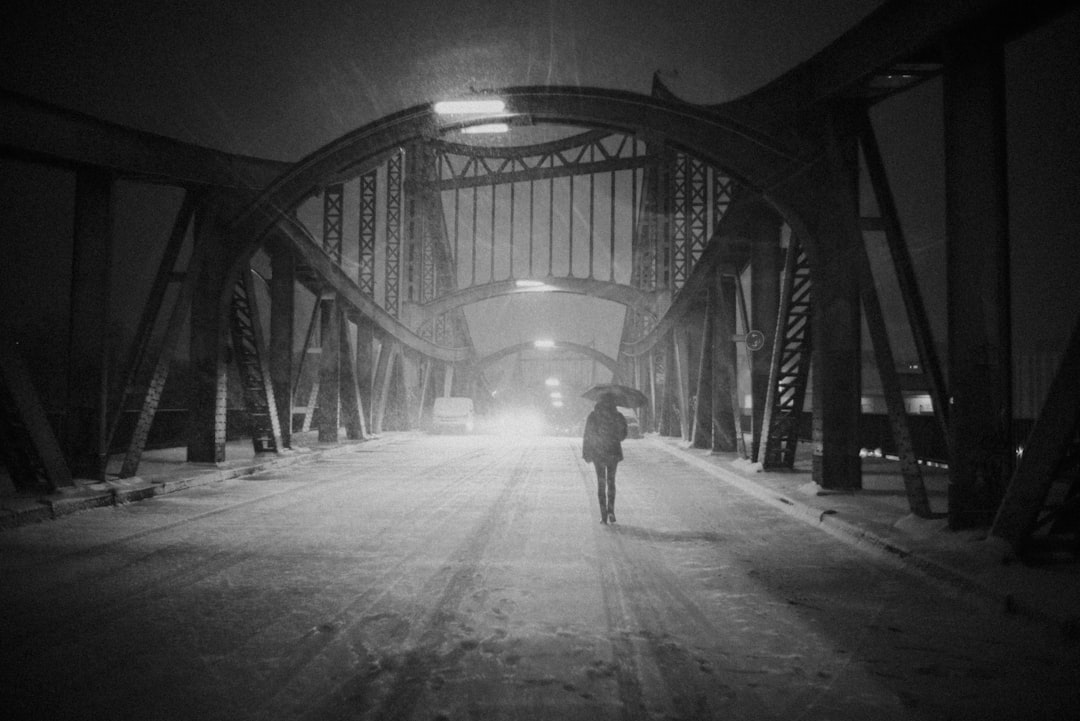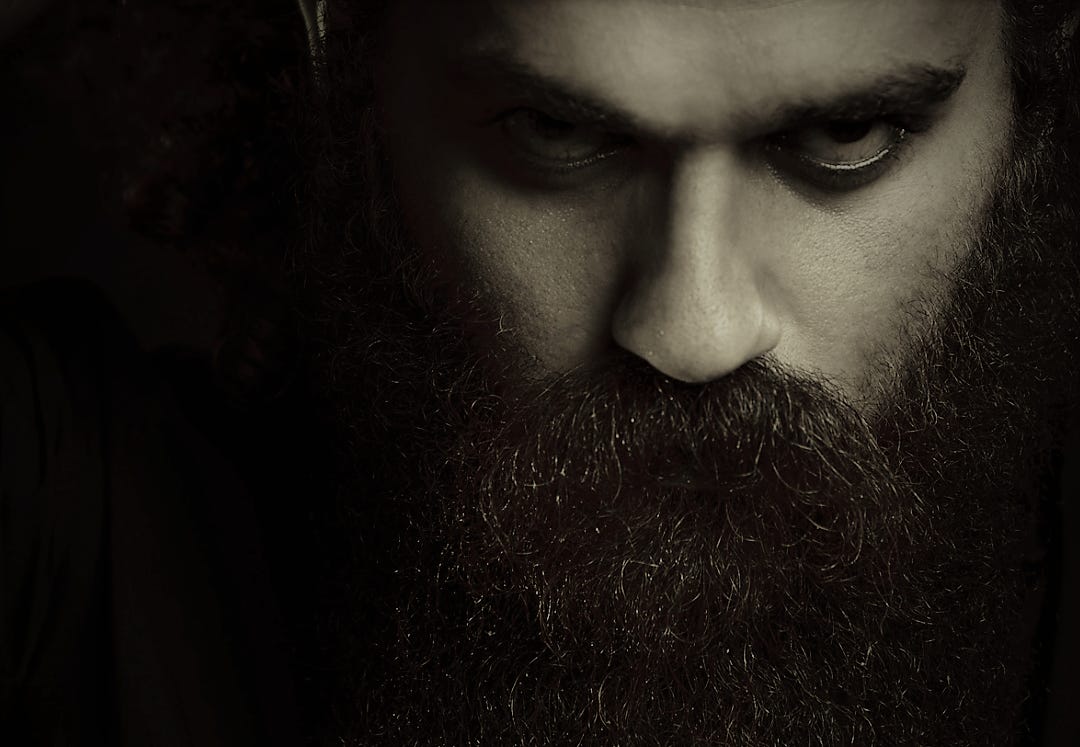In honor of my first submission to an independent publisher—Agents! Who needs ‘em? Feh!—here is a deleted chapter from my novel, Watrspout.
Feodor
When Feo was ten years old, his mother sent him down to the concrete playground between their building and the three other nine-story apartment blocks on their plaza. Most of the Khrushchevki the government built were shorter, five story walk-ups.
“We are lucky to have an elevator,” his mother said as she rearranged his thick black curls, more for fun than effect. They waited for what seemed ages in the crud-orange hall, a color some officious Party architect believed cheerful. When his father was with them he would take the stairs so his wife and son could ride up or down together; the coffin-sized elevator was barely big enough for two, and slow enough that he would arrive before them and always pretend surprise when the door opened.
That blue winter day, his father’s last before the Christmas break teaching poetry at the moldering college of humanities in Moscow, Feo’s mother sent him out to play with an onion sandwich wrapped in paper.
“Be a good boy, Feodor—Mama has to clean, and mop the floors.” She buttoned his sweater, zipped up his jacket, pulled his cap down over his ears, and kissed him many times on each cheek, on his nose and each eye, his dimples and his chin, with great, loud lip smackings. She kept on until he squealed with laughter and she was sure he was full of her love and happiness, and then sent him down.
“I’ll come to get you when I’m finished.” As the elevator door closed, she rubbed her stomach with both hands and Feo thought she must be hungry. She had been tired, lately, but otherwise cheerful.
He played by himself for a while, and then the other children came out for the day. He was popular, bigger than the rest of the kids; one girl pined for him, but he was more fond of her little brother, five years old, blond and wide-eyed. The sister was jealous, and tried to push the boy out of the way so Feo would play only with her on the swings and carousel, but Feo was firm they should both have a turn. In his heart, he preferred to shepherd the brother like an adored puppy.
At lunchtime, the children all left to go home but Feo stayed and ate his sandwich alone, and he had his thoughts of the boy to keep him company. He dangled lazily on the swing, thinking how nice it would be to have a younger brother of his own. They could run and swim and horse around. They would share a bedroom, and he could help him to dress and get ready for school and walk him by the hand to his classroom.
He asked his parents once if he would ever have a brother, and they were quiet for a moment, then explained that his mother’s heart was not strong, and when she carried Feo inside of her, the doctors and everyone were very worried. After he was born they said she should not have another baby.
It was too bad—he really would have liked a little brother, and so he admired the young blond boy best of all the other kids, who were mostly older. At five, the child was too young to be a real friend, but Feo liked to think about him at night when he was alone and wished he had someone close by in the dark. His mother and father were always too worried and tired from working to stay long in his room as they tucked him in, and he was getting too old now for stories and cuddling.
The other kids trickled back out to the playground after lunch, and the stark winter sunlight slid between the two buildings that cast shadows across the yard much of the day. Feo took off his jacket, and he ran with the other kids around the carousel, and then he took off his sweater too because it was hard work, but he was the only one of the older kids who would turn the wheel while the little ones clung to it, laughing and screaming to go faster and faster.
The blond boy and his sister did not come back out after lunch, but he had many friends of all ages and they played until the sun disappeared behind Building Nine, the signal for them all to go home because their mothers had finished their cleaning and their cooking and their washing for the day, and they might have a late snack before their fathers got home from work.
Feo’s mother did not come. He continued to ride on the carousel by himself when all the other children went home, one foot on the wheel and the other kicking, spinning himself round and round for a long time, until the world seemed to him an endless rushing film, building and sky, building and parking lot, building and playground, building and sky again.
Though his mother often seemed sad that they lived in this gray place, he found it nice, the sky and the playground, and the other kids, and even the parking lot where his father drove up after teaching and sometimes Feo was still there playing. And so he was not worried that his mother still had not come to get him after all the rest of the kids went home. At some point, though, he had to pee.
It was getting cold. The sun was down. He put his sweater and his coat back on, and when he could hold it no longer, he took the tiny elevator up to their floor and knocked on the door of their apartment. He waited a minute, then knocked again, dancing around from foot to foot. He knocked again, but now it was an emergency, and he thought she might have gone to Mrs. Petrushka’s for tea and forgotten to come get him. He went down the hall and knocked on the old lady’s door. When she cracked it open and peered out, Feo was screwed up into a frantic, urgent knot, and she waved him through straight to the bathroom.
He told her what happened, and Mrs. Petrushka walked down the hall with him to knock on the door, and when again there was no answer, she tried to call on the telephone in her apartment but no luck. She offered to let him stay with her until his mother came home—she must have gone out to the market—and Feo said thank you but he would go down to the playground again until his father came, any time now. He knocked on the apartment door one more time before he went back downstairs, even pressed his ear against it to listen for her footsteps.
His father was late coming home from work—not long, only a half hour—but by the time he walked past the playground, it was dark, and Feo had long since run out of fun. He was cold, and he was worried, and he had never wished so badly for a little brother beside him.
Mrs. Petrushka stood fretting in the hallway when the elevator door opened—she was worried too, and had been listening for his father to arrive. She said she had some nice rolls straight from the oven, with some margarine and milk, and would Feo like a bite to eat while his father said hello to his mother after his long day at work?
Feo was confused, but he was thirsty and hungry, and his father said what a good idea, he would be down to get him in just a minute as he fumbled with his keys, and Mrs. Petrushka led Feo into her warm kitchen, which smelled so good, and the rolls were delicious, crusty outside and soft as cotton inside. But it was quite some time before his father came down the hall to get him. Feo had eaten three rolls, and finished his milk, and Mrs. Petrushka was running out of songs to hum when the knock came finally at the door.
Mrs. Petrushka went to answer it. Feo’s father sat down heavily at the table in her kitchen and was silent. Feo asked if he wanted a roll, and jumped up to fetch one, but when he brought it, his father grabbed him and crushed him to his chest, the roll squashed between them.
His father whispered hoarsely just one thing, and Mrs. Petrushka rushed to the cupboard to produce it.
“Vodka.”

Some background
Feo (short for Feodor, and Spanish for “ugly” I found out later) is a character in my first novel, Watrspout, and the boyfriend of the MC, Jimmy Traywick.
He’s a gigantic, bald, bear of a Russian who feels an enormous sense of tenderness toward our hapless hero. Party boy Jimmy wends his drunken way from one bad hook-up to the next through the first half of the book, but finally comes around to the promise of stability and nurturing in Feo’s affections, and they fall in love.
This chapter was written as character background for Feo, and loosely based on the real-life story of my dear friend, Alex, an Austrian who bounced back and forth between Vienna and San Francisco a number of times until his untimely death of the same heart condition from which his mother suffered. The tale of his being sent out to play as a child, and returning to no answer at the door, always filled me with sadness and sympathy.
In the end, the chapter was a stand-alone which just didn’t fit and never made it past the rough draft. Watrspout is told in limited 3rd-person from Jimmy’s POV—this chapter alone was from Feo’s, and the “once upon a time” tone didn’t match the voice in the rest of the book.
I had to cut the chapter, but it was very special to me, so I decided to turn it into a short story as an homage to Alex.




Thanks so much for sharing this Troy, and especially for the background information on not only why this was cut but also the inspiration for it. I'm very sorry to hear about Alex.
As Chloe notes, I felt like I was watching a short story on film whilst reading this and I wanted it to continue! So very well executed.
I always enjoy and appreciate a look/thought behind the scenes of process and your reasoning makes sense why it was cut. Nevertheless, a) I'm glad you shared, and b) your synopsis of the tale and the limited 3rd PoV (I do so enjoy that restricted PoV in writing) makes me want to read WATRSPOUT all the more.
Troy, this is so vividly told I feel like I just watched a short film. Absolutely gut wrenching towards the end, and even more so to know that this is your friends story. It’s a gorgeous tribute to him, I’m so glad it became its own standalone piece & I’m most grateful to you for sharing it.